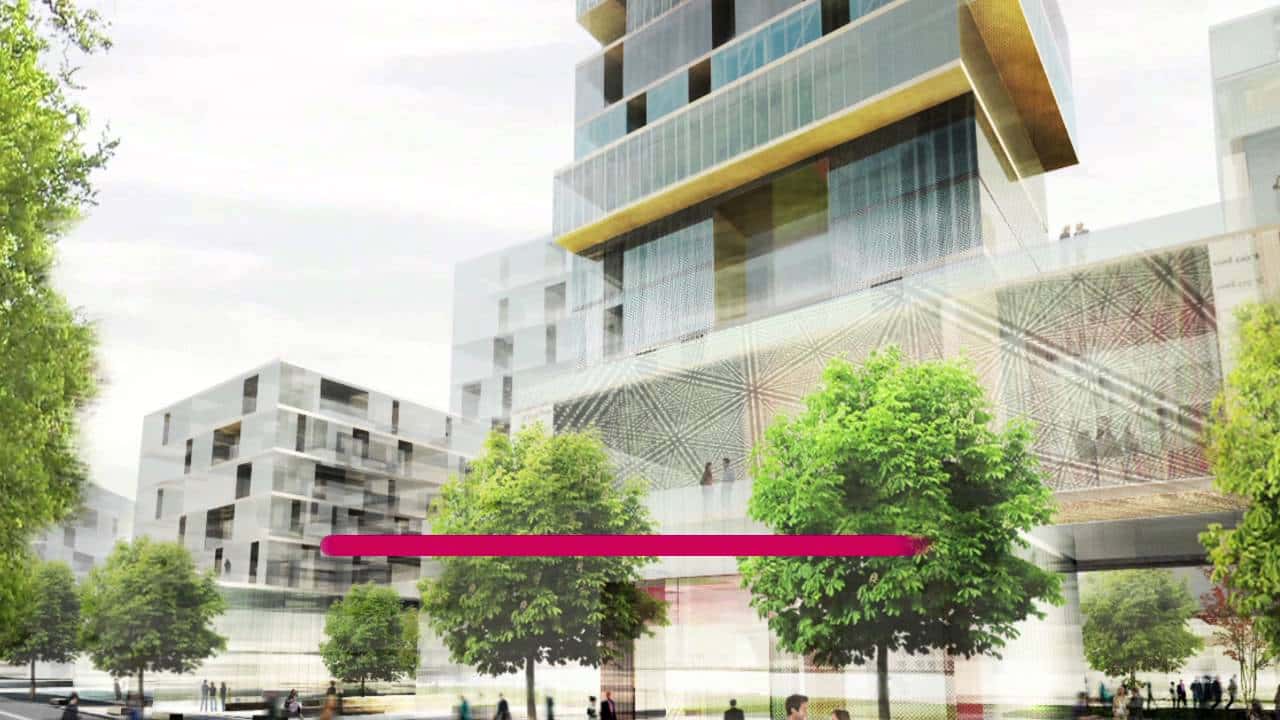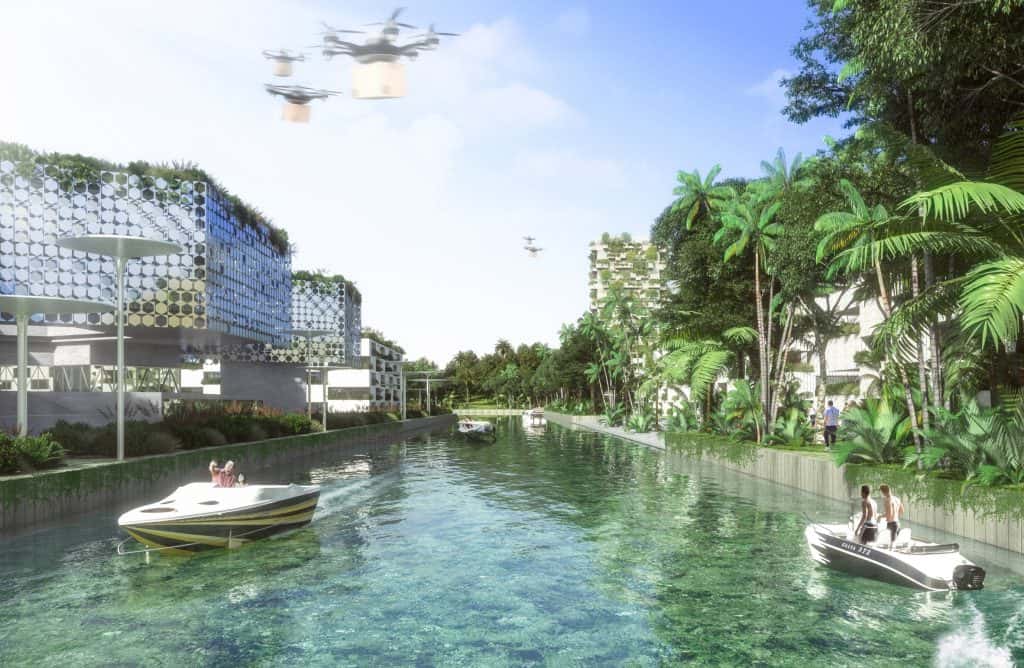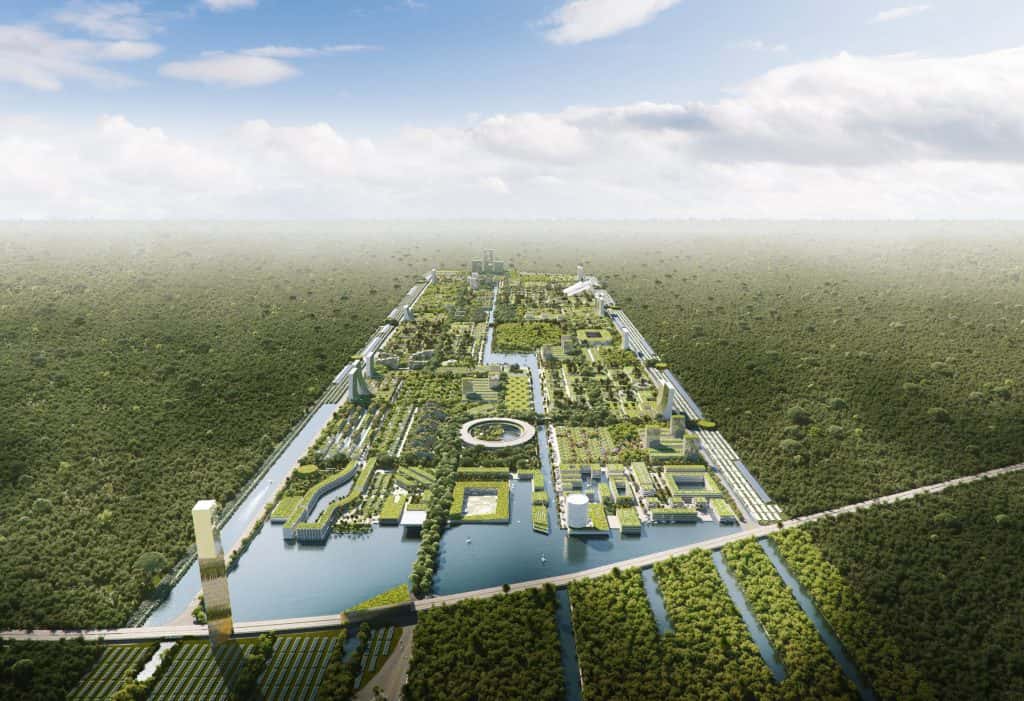Yucatan will forge the future of smart cities in Latin America
From October 5 to 14, Yucatan is ready to host for the second time the Smart City Expo LATAM Congress at the national level, which will be held in person and virtually, with the participation of representatives from more than 300 cities in the country and the world.

Yucatan is ready to host for the second time the Smart City Expo LATAM Congress at the national level, which will be held in person and virtually from October 5 to 14, with the participation of representatives from more than 300 cities in the country and the world, and over 200 institutions and companies, under the slogan "Rethink, reactivate and rebuild".
For the first time in its history, this activity will be held in a hybrid format: from the 5th to the 7th of that month, it will take place at the International Congress Center (CIC), applying strict sanitary biosecurity protocols, while from the 11th to the 14th, it will continue through a digital platform, which will allow interaction with speakers from different parts of the world.
Currently, cities face two main challenges: the first, to manage themselves with technology and innovative ways to achieve more sustainable environments, and the other, the development of the meetings industry, one of the sectors most involved in the pandemic, which opens the opportunity of what this area will be in the future, beyond the economic spillover.
About this meeting, one of the largest and most important worldwide, in terms of innovation, technological development, and city design, Yucatan is ready to have all the necessary biosecurity protocols during its development, as well as all the measures aimed at preserving the health of attendees, exhibitors, logistical and operational team.
The objective of the Congress is to reach the main players in the transformation of cities and territories in Latin America, who contribute ideas, share knowledge and seek solutions to face the great challenges of the region's cities, and thus, improve the quality of life of its inhabitants, through collaboration, digital transformation, and innovation in all areas.
This edition will include top-level speakers, such as Natalia Olson-Urtecho, from The Disruptive Factory & Honest Impact Fund; urban planner Carlos Moreno, from the Sorbonne Unit, historic the University of Paris, and Rodrigo Baggio, founder, and president of the Center for Digital Inclusion (CDI); as well as national and international institutions, such as UN-Habitat, Techo, Cide and both ministries and municipalities from practically all the countries in the region.
Its content will revolve around a central theme, which this year is economic reactivation, and will also address issues such as the social impact of the pandemic in our cities, the current challenges of urban mobility, community health, regional development, and technological innovation.

Mexico ready to develop smart cities
Mexico is in a position to start developing Smart Cities, which will organize urban development, mobility, government procedures, and monitor safety and traffic, among others, through data analysis and blockchain. A smart city is a complex and interconnected system that applies new technologies to manage everything from the proper functioning of public and private transportation systems to the efficient use of energy or water resources.
A smart city detects the needs of its citizens and reacts to these demands. The city bases its actions and management on this knowledge, ideally in real-time, or even anticipating what may happen. Mexico City has the conditions to be a Smart City. It has a sophisticated and connected society, nothing alien to today's technologies, the historical moment of change being experienced, and the intellectual resource, form the perfect ecosystem for the digital transformation of the city.
There are different non-exclusive models on which an intelligent city can be developed: environment, mobility, governance, economy, people, and housing. Of course, the real 'smart' metropolis brings together each of these categories to be as efficient and green as possible.
But cities are gradually moving forward on different fronts and today integrated service platforms are common; applications for tourists, citizens, and business people to discover the activities of the municipality. Even special programs to support SMEs (such as urban living labs or nurseries), and the installation of more environmentally friendly initiatives.
These are the four smart cities in Mexico
In Mexico, there are four cities that are considered Intelligent Cities by the Inter-American Development Bank (IDB). The international organization declared Maderas, in Querétaro; Ciudad Creativa and Tequila, in Jalisco; and Smart, in Puebla, as intelligent zones. In addition, there is Mexico City, which although not 100% intelligent, has several characteristics that lead to that category.
Maderas, Querétaro
Located in the municipality of Santiago, Maderas was the first intelligent city to be built in Mexico. It began in 2013 and is expected to be completed by 2020. It is currently developing 100,000 homes on 400 hectares, plus 20,000 properties on the periphery.
Tequila, Jalisco
This magical town works to be catalogued as an intelligent city since 2014 and is expected to conclude its process in 2040. Considered the first intelligent tourist city, local authorities seek to promote mobility, connectivity, and open data and thus replicate this model in other magical towns in the country.
Digital Creative City, Jalisco
This project has been developed since 2014 within Guadalajara, as a bet to favor the digital and creative industry. This site will have 380 hectares and will house 50,000 people. The average price of houses in the capital city is $1,849,000 pesos (USD 94,764).
Smart, Puebla
Located within the state capital, this city aims to focus on the economic development of its inhabitants on technological innovation. That is why universities and civil society organizations work in it in order to improve integral sustainability.

Smart forest Cancun
The Italian architect Stefano Boeri presented to the authorities of Quintana Roo Smart Forest Cancun, an intelligent city project surrounded by forests and that will be presented as a precursor construction in the eco-efficient building. The development will cover 557 hectares, will have 130,000 inhabitants, and will house 7.5 million plants, shrubs, and trees.
"It is a botanical garden within a contemporary city, based on Mayan heritage and its relationship with the natural and sacred world [...] It is an urban ecosystem where nature and the city are intertwined and act as a single organism," said Stefano Boeri. According to the Dezeen portal, it will have sensors and big data for the management of the city, the consumption of energy, and the life of citizens, so it is estimated that it will be self-sufficient and that the locals themselves will produce their own energy and food.
Stefano Boeri partnered with Transsolar, an engineering company, to include solar panels and to irrigate farmland with an integrated water system. In addition to sustainability, "Smart Forest City Cancun is expected to absorb 116,000 tons of carbon dioxide with 5,800 tons of CO2 stored per year [...] and could make our world a better place, significantly reducing negative impacts on the environment," he said.
Because of its proximity to Cancun and the Caribbean Sea, the development will be surrounded by "water gardens," in order to reinforce the project against flooding, and can also be used to navigate around the smart city. In terms of mobility, there will be an internal electrical and semi-automatic system that will be developed by Mobility in Chain (MIC), so the inhabitants will have to leave their vehicles out of the development.
The housing to be built on this site will be of two affordable types and the complex will be a research center with six facilities that will address issues such as bio-health care; astrophysics planetary science; coral reef restoration; precision agriculture and regenerative technology; intelligent city; mobility and robotics. It is worth mentioning that this project is part of the architect's concept of Forest City, which are cities formed by skyscrapers covered with plants in urban areas of China. In addition to being awaiting resolution by the authorities.




